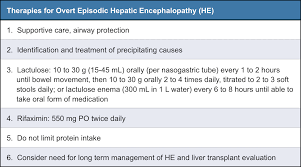The nurse is reviewing the record of a female client with Crohn's disease. Which stool characteristics should the nurse expect to note documented in the client's record?
Stools constantly oozing from the rectum
Chronic constipation
Diarrhea
Constipation alternating with diarrhea
The Correct Answer is C
Choice A rationale: Not a typical characteristic of Crohn's disease; more associated with conditions like rectal fistulas.
Choice B rationale: Crohn's disease commonly involves diarrhea rather than chronic constipation.
Choice C rationale: A common symptom of Crohn's disease due to inflammation and malabsorption in the intestines.
Choice D rationale: Crohn's disease typically presents with diarrhea but not necessarily alternating with constipation. Constipation alternating with diarrhea may also occur in irritable bowel syndrome.
Nursing Test Bank
Naxlex Comprehensive Predictor Exams
Related Questions
Correct Answer is D
Explanation
Choice A rationale: Used in the management of hepatic encephalopathy by reducing the production of ammonia in the gut.
Choice B rationale: Often prescribed to reduce ammonia levels in hepatic encephalopathy by promoting bowel movements and aiding ammonia excretion. Choice C rationale: Typically used in managing ascites by reducing fluid retention and treating edema.
Choice D rationale: This medication can potentially worsen hepatic encephalopathy due to its sedative effects and impact on mental function. It's crucial to clarify its use in a patient with hepatic encephalopathy.

Correct Answer is B
Explanation
Choice A rationale: this corresponds with 25 mg which is lower than the prescribed amount.
Choice B rationale: To answer this question, we need to use the formula: volume (mL) = dose (mg) / concentration (mg/mL). We plug in the given values: volume (mL) = 35 mg / 25 mg/mL. We simplify the fraction: volume (mL) = 7/5. We convert the fraction to a
decimal: volume (mL) = 1.4. Therefore, the nurse should administer 1.4 mL of promethazine.
Choice C rationale: this corresponds with 37.5 mg which is too high.
Choice D rationale: this corresponds with 17.5 mg which is too low.
Whether you are a student looking to ace your exams or a practicing nurse seeking to enhance your expertise , our nursing education contents will empower you with the confidence and competence to make a difference in the lives of patients and become a respected leader in the healthcare field.
Visit Naxlex, invest in your future and unlock endless possibilities with our unparalleled nursing education contents today
Report Wrong Answer on the Current Question
Do you disagree with the answer? If yes, what is your expected answer? Explain.
Kindly be descriptive with the issue you are facing.
